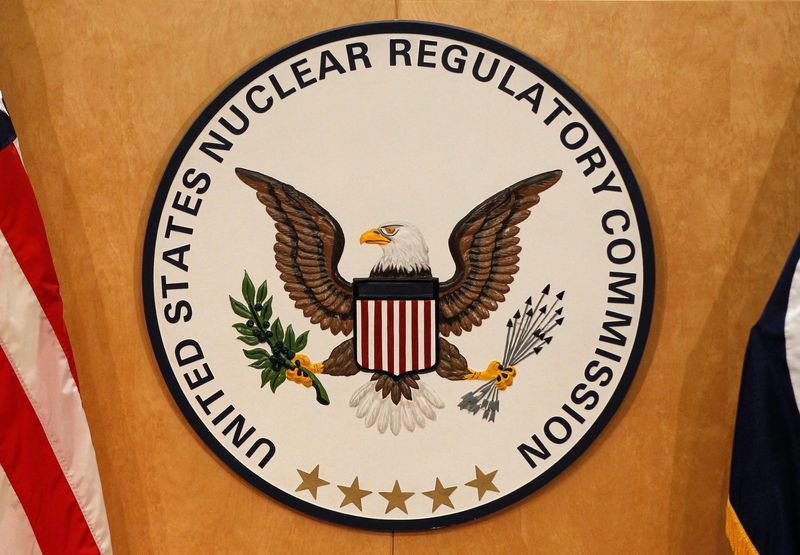By Nate Raymond
(Reuters) -The U.S. Supreme Court agreed on Friday to decide whether the Nuclear Regulatory Commission has the authority to license nuclear waste storage facilities following a judicial ruling that upended decades of practice by declaring it does not.
The justices took up appeals by President Joe Biden’s administration and a company that was awarded a license by the NRC to build a waste storage facility in western Texas of the lower court’s ruling. The license was challenged by the states of Texas and New Mexico, as well as oil industry interests.
The Supreme Court will hear arguments in the case in its new term, which begins on Monday, and a decision is expected by the end of June.
The Supreme Court, which has a 6-3 conservative majority, has shown skepticism toward the authority of federal regulatory agencies in several major rulings in recent years.
The NRC, the federal agency tasked with regulating nuclear energy in the United States, issued the license in 2021 to Interim Storage Partners, a joint venture of France-based Orano and Dallas-based Waste Control Specialists.
While two other federal appeals courts rejected legal challenges to the license, the New Orleans-based 5th U.S. Circuit Court of Appeals ruled in favor of the plaintiffs and decided that the NRC lacked authority under a federal law called the Atomic Energy Act of 1954 to issue the license at all.
The administration has said the ruling would disrupt the nuclear energy sector.
The NRC has issued licenses like the one at issue in this case for the temporary storage of spent fuel produced by nuclear reactors since 1980 in recognition that the nuclear-power industry would need more space for the off-site storage of the radioactive waste.
It did so pursuant to its authority under the Atomic Energy Act to issue licenses to possess nuclear material. Such sites have continued to be licensed, with a proposal to permanently store the nation’s radioactive waste at Yucca Mountain north of Las Vegas stalled following decades of opposition in Nevada.
In the 5th Circuit ruling against the license, Judge James Ho, an appointee of Republican former President Donald Trump, cited a different law, the Nuclear Waste Policy Act, that was amended in 1987 to designate Yucca as the sole permanent storage site for such radioactive waste.
Interim Storage Partners planned to operate its nuclear storage facility in Andrews County, Texas. The plan drew opposition from oil- and gas-related organizations because the facility would be operated within the Permian Basin, the highest-producing oil field in the country.
Texas and New Mexico were joined in the litigation challenging the license by Fasken Land and Minerals, a Texas-based oil and gas extraction organization, and a nonprofit group called the Permian Basin Coalition Of Land And Royalty Owners And Operators.
The plaintiffs argued that allowing the proposed facility to be built posed environmental risks to watersheds covering nearly all of New Mexico and Texas, and that a radiation leak could be economically disastrous for oil and gas operations.

“For years, the Nuclear Regulatory Commission and two private corporations have attempted to force Texas and New Mexico into accepting stockpiled radioactive waste,” Monica Perales, an attorney for Fasken Oil & Ranch, said on Friday.
The commission “lacks the authority to issue licenses for consolidated interim storage of spent nuclear fuel in a region hundreds and even thousands of miles away from the reactors that generated the waste,” Perales added.

